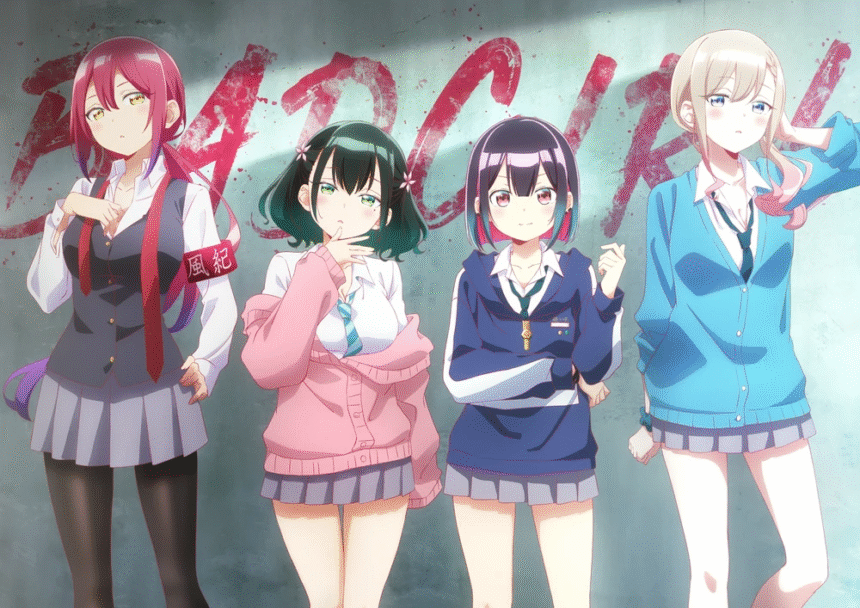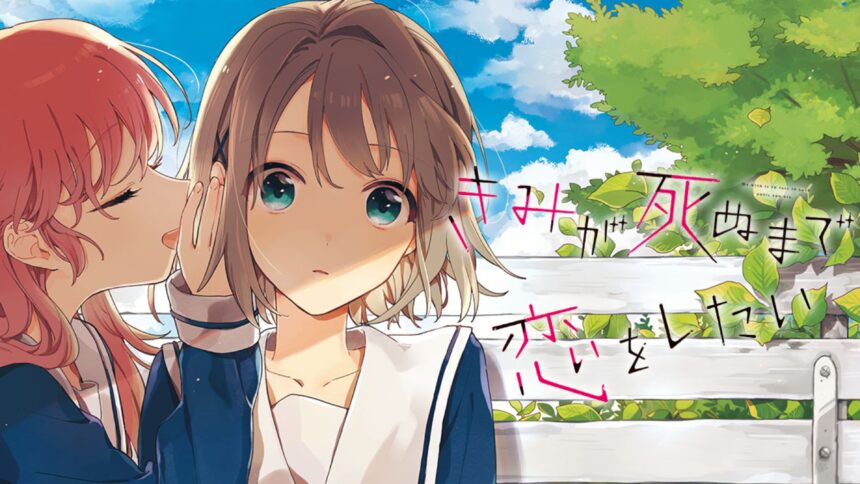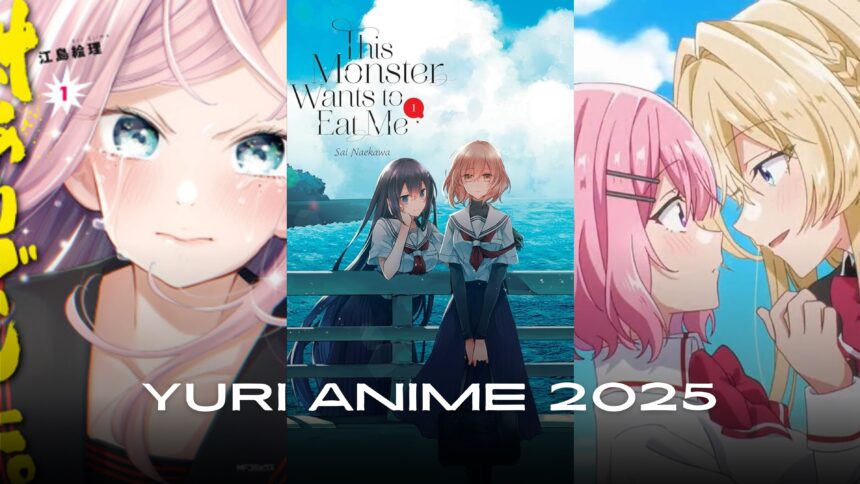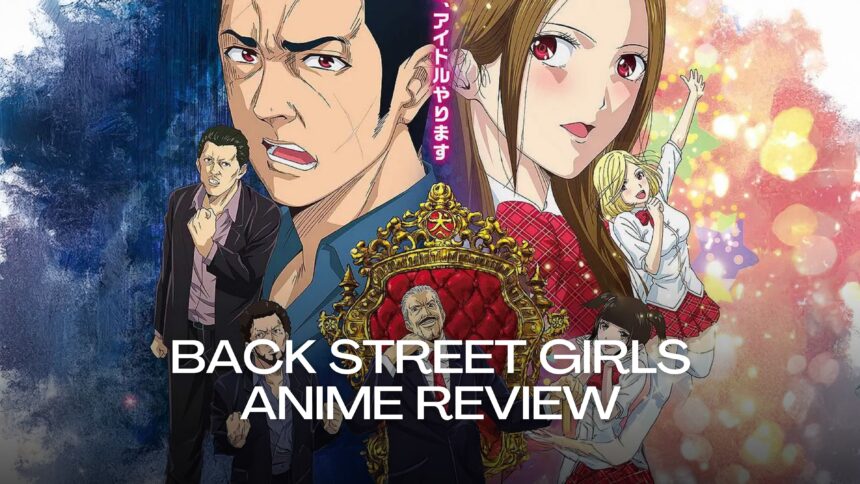Although there are many anime with cute girls, relatively few anime are aimed at specifically queer women, and LGBTQ+ gals must resort to getting their fill from the implications of shows like Frieren: Beyond Journey’s End (and there is a lot to work with there).
But in July 2025, Bad Girl, an adaptation of a long-running four-panel manga of the same name by Nikumaru, began airing. As an explicitly yuri anime, with barely a man depicted onscreen, this romance comedy has been eagerly awaited. So is this anime an honor student, or a delinquent? And which is better, in this instance? Here are my impressions of the first few episodes of Bad Girl.

Premise
Bad Girl follows our protagonist, Yuu Yuutani. whose name means “tenderness,” who are the beginning of the show is the image of the perfect young lady. She helps old people across the street, assists her mother with household chores, and massages her father’s shoulders when he comes home from work. Her grades and attendance are perfect, and her teachers all consider her a model student.
And that’s the problem.
For you see, Yuu is infatuated with her upperclassman, the discipline committee chairman Atori Mizutani. But, if she’s so well behaved… how can she attract the attention of the one girl in school whose job it is to go after ill-behaved kids? So, she resolves to become a bad girl — hence the title.
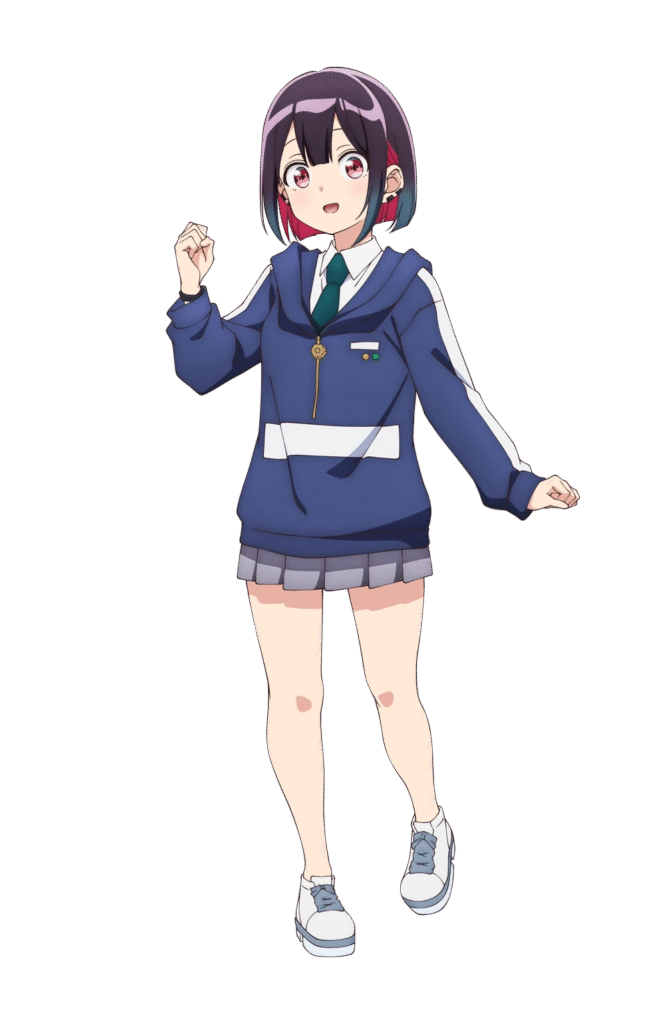
Sadly, her goody two-shoes lifestyle, inside and out, means that she has little idea of what to do in order to actually be bad. So, she relies on advice from her best friend, Suzu Suzukaze, Yuu’s kind-hearted neighbor who looks like a rough-type, but is actually a sweetheart, who happens to have a crush on Yuu — but as her bestie, can’t help but root for her a little as she pursues Atori.
As the show progresses, Yuu’s attempts to be villainous conflict with her natural goodness and shyness, with comedic results.
But how funny is it? And for a yuri anime based on an anime created by a man… is it really lesbian friendly?
Bad Girl or Funny Girl?
The premise, to me, of someone wanting to go against type in order by acting out in order to get the attention of her adored senpai is, on the surface, genius and rife for comedy. Indeed, the first few moments are filled with little joys. Yuu wants to shake her image as the perfect student, so she gets big ear piercings, a two-toned dye job, platform shoes, and a super loose fitting sweater to go over her uniform. Initially, even Suzu is somewhat impressed.
But the fun here is that she can’t go all the way. Her big piercings? Mini document clips (which seem like they would hurt a lot). Her new hair dye? Carefully placed extensions. Her platforms? Her regular shoes she glued pencil erasers to. Her oversized sweater? She just stretched her regular one. When she boasts about this, Suzu changes her mind: lame as hell. And sadly, even Atori shrugs it off. While she stops Yuu for an examination at a glance, she can tell she’s no rule breaker. Her efforts fell sadly, but hilariously, short.

Her second chance comes during a chance encounter on the bus. She asks Suzu for advice on how to look like a devil-may-care chick when Atori sits near on the bus, without initially noticing her. After being given the advice that everyone hates people eating and drinking on the bus, she sucks a seaweed candy, and sips a little plum tea: more grandma than grand theft.
Eventually, when a real grandma enters the bus, Yuu and Atori offer their seat, only for Yuu, flustered, instead of saying, “I feel like standing, so sit on my chair,” says, “I feel like a chair, so sit on me.” This funny mix-up leads to them becoming friends after Atori says that Yuu is cute: Yuu thinking Atori is into girls, Atori thinking Yuu is like a puppy.
If you are getting some mild power-play vibes from that last part, then I can assure that, for better or worse (depending on your taste), the mildness doesn’t stay mild.
Woof or Rough?
While I find the premise and the show funny, there are some issues I have that make me feel like this show, more than the manga (which I read in order to compare) is a show that, while it has an exclusively female cast, and is entirely about girls who like each other, feels like it was created for the male gaze.
The OP animation, for example, is filled with the main cast either naked or in French maid costumes, getting close to each other, but with their eyes directed towards the viewer. This level of sexualization is especially problematic when you consider that these girls are all underage.
This is exacerbated in the anime itself. One running joke is that, because Atori thinks of Yuu as more of a cute puppy than a complete person, she buys her a dog ear hair band, and a dog collar (actually, more than one, in the duration of just the first two episodes).
When she reveals to Suzu, who she met on a chance encounter, that she bought these for Yuu, the animation shows Suzu’s imagination of Yuu leashed and on all fours, which excites her. This is present in the original manga, but one panel in a four-panel gag strip is extended by the show’s camera into a lingering look at a fetishized young woman. More, the anime extends the gag by having a misunderstanding from Yuu imagine Atori bound and dominated by Suzu, another extended moment that was not in the manga.
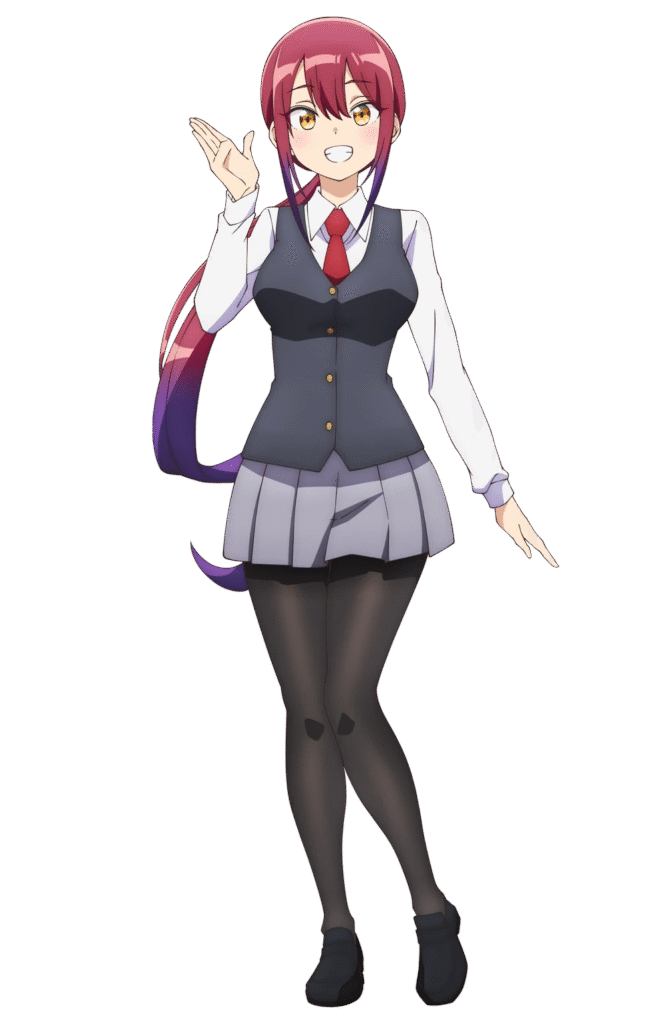
Obviously, anyone can be into kink, but it did make for uncomfortable viewing to see this joke played out — with sometimes increasing levels of sincerity — by characters who are all schoolgirls, and in a way that sometimes forgets to tell a joke, other than “Yuu lets out her trademark ‘Koh-hyuu!’ cry of flustered embarrassment.”
The show is, naturally, about jokes, but I wasn’t expecting this level of titillation. I spent most of my time watching rooting for the supposedly more temperamental Suzu, who is thoughtful, careful, and considerate for most of the time, while the other characters “flirt” with one another, to degrees that beggar belief would come from a discipline committee chairman.
Again, it is comedy first and foremost, but I was expected something more like a romance comedy of errors, rather than a raunchy comedy, and this may work for some viewers. I just personally found it disappointing that one of the few purely lesbian anime of this year seems so geared to pleasing a presumably male audience (not that women viewers cannot enjoy the content, but the presentation of the characters, far more than the manga, says to me: “you’re welcome here, but this is not for you”).
Sound and Animation
The animation is perfectly fine, and fits a comedy anime: energetic without being overly detailed. The designs are typical “sexy girl” styles, but one thing lost in translation from the manga is that the colored hues in the characters hair makes the story beats strange sometimes. Suzu, who has naturally blonde hair, is singled out for being a potential yankee, and Yuu gets a two-color dye hoping to be provocative… but everyone has two tones of color in their hair — including Atori, with bright red hair and purple highlights.
I honestly don’t recall the score much, but it was unobtrusive and lent itself well to the general comedic atmosphere, even if, as above, not all of the humor was to my taste. The OP is energetic and fits the tone of the show excellently, but the fetishized images of the girls, as mentioned above, is off-putting to me. Conversely, the ED has a cool pop-rockness to it, and the animation sees the cast in fashion of unified theme but distinct to each of them. I found this much more appealing.

The voice cast is excellent. While I think Atori’s Niina Hanamiya sometimes over-eggs the pudding, Yuu’s Azusa Tachibani does an extraordinary job of capturing the enthusiasm and shyness of a crush, while Misato Matsuoka’s performance as Suzu is perhaps as subtle as one can expect from a comedy of this nature, but it works excellently to portray her feelings of quiet frustration.
Conclusion
This is a difficult one for me. I think the premise is excellent, simple, and easily understood. The feelings of enthusiasm and nervousness and hopes and despairs of a teenage crush are very well exemplified. There’s a lot to like. But when I think of something that queer women might want to look at as an iconic comedy, I can’t help but feel that this is still, as many anime are, made by men for men. I’d recommend doing as I did, and trying the first three episodes to see how your mileage varies.

